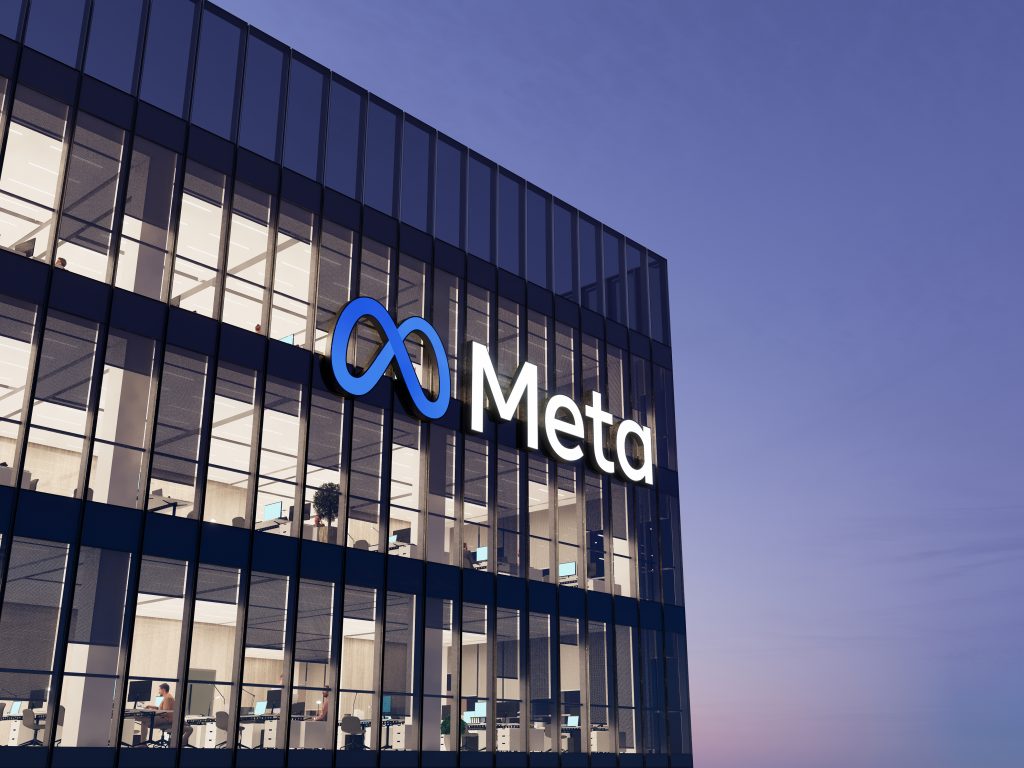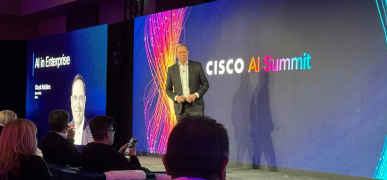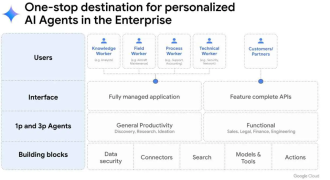
Meta has just announced the availability of its open-source Llama models—which I consider to be industry-leading—to U.S. government agencies in the areas of defense and national security, along with their private-sector partners. With China making significant strides in developing its own variants of open-source AI models, it is essential that the U.S. doesn’t fall behind and has access to the industry’s most advanced models backed by a strong partner ecosystem. Meta’s move today promotes both U.S. leadership in the international technology landscape and the emergence of what Meta calls “a global open source standard for AI models” on par with Linux and Android.
Meta’s Success With Llama And Open Source
As we further examine the significance of today’s news, we need to first look at the evolution of Meta’s Llama. As I wrote previously, the Llama family of models has become a significant player in the enterprise AI landscape, particularly due to its open-source approach and the flexibility and business value it’s delivering for a diverse range of organizations. Llama models have gained considerable traction with the enterprise ecosystem over the last year, particularly with the latest releases of Llama 3.1 and 3.2, with a range of model sizes from frontier-class to on-device. Enterprises are using Llama for various applications, from content creation (Accenture) to customer support (AT&T) to code generation (Nomura) to powering generative AI chatbots (Zoom).
I believe Meta’s commitment to open-source AI is a key differentiator compared to competitors such as OpenAI and Google. While OpenAI and others maintain more closed ecosystems motivated by commercial interests, Meta has embraced an open-source philosophy, allowing enterprises to customize models more easily and avoid vendor lock-in. This approach mirrors Meta’s broader strategy of fostering innovation through openness, as seen with other initiatives like the Open Compute Project and PyTorch.
China’s Investments In AI And Other Advanced Technologies
China has already made big investments in advanced technologies—including AI—with more on the way. In 2020, the South China Morning Post reported that Beijing’s master plan for investment included an estimated 10 trillion yuan ($1.4 trillion) to be invested by 2025 to “help lay 5G wireless networks, install cameras and sensors and develop AI software that will underpin [projects ranging from] autonomous driving to automated factories and mass surveillance.” Another SCMP report from just a couple of months ago, September 2024, cited Chen Liang, chairman of the government-backed investment bank China International Capital Corporation, as saying that China’s AI industry might invest another 10 trillion yuan in AI in the next six years.
The CICC, like many other state-controlled entities in China, operates under the broader governance of the Chinese Communist Party, which implements policies such as Military-Civil Fusion. According to the State Department, MCF is a national strategy aimed at integrating the civilian and military sectors in China to enhance the capabilities of the People’s Liberation Army. Is it a stretch to imagine that the fruits of those massive investments in advanced tech would be used militarily? I think not.
Opening Up Llama For National Security Uses
So, what about U.S. defense and national security, AI and Meta? Up until today, Meta’s Acceptable Use Policy for Llama restricted use for these purposes. With today’s news, the company is taking a new approach and making Llama available to public-sector agencies in these areas to provide access to the models and the supporting tools and infrastructure. The significance of this comes not just from Meta’s announcement, but from the support by well-established leaders in this space including Accenture, Amazon Web Services, Anduril, Booz Allen, Databricks, Deloitte, IBM, Leidos, Lockheed Martin, Microsoft, Oracle, Palantir, Scale AI and Snowflake.
In its announcement today, Meta provided real examples of how the defense industry and related government efforts are leveraging Llama to increase efficiency and functionality across many different areas, ranging from military aviation to cybersecurity and even international efforts at societal improvement. Let’s review some key examples.
Oracle: Streamlined Aircraft Maintenance
Oracle has integrated Llama into its maintenance systems to synthesize and analyze aircraft maintenance documents, improving diagnostic accuracy and speeding up repair processes. This application helps return aircraft, among other military assets, to service more quickly, which is important for maintaining military readiness. This resonates with Oracle’s corporate history: Oracle’s first customer ever was the CIA, and the company’s technology is interspersed across the defense industry.
Scale AI: Mission-Specific Enhancements
Scale AI has fine-tuned Llama for national security, focusing on operational planning and identifying adversarial vulnerabilities. This could help defense teams make better strategic decisions. Llama’s adaptability in high-stakes environments demonstrates its capability to provide crucial insights for national defense.
Scale AI says it is involved in projects including the U.S. Army’s Robotic Combat Vehicle program, where it provides its Data Engine platform to support autonomous navigation, computer vision and risk mitigation for combat troops in high-risk environments. This includes developing AI models for off-road terrain navigation and extreme conditions.
Lockheed Martin: AI Factory Integration
Lockheed Martin has incorporated Llama into its AI Factory, improving workflows in data analysis, code generation and process optimization. Through automation and faster analysis of large datasets, the AI Factory facilitates a more flexible product development method, enhancing efficiency and reducing expenses for Lockheed Martin and other defense contractors.
As it has been for many decades, Lockheed Martin is deeply involved in providing military equipment through a wide range of defense contracts and programs, primarily with the U.S. Department of Defense and allied nations. These programs include F35, F22, F18 and F16 fighter planes, new hypersonic weaponry and even Blackhawk helicopters.
Amazon Web Services And Microsoft Azure: Secure Hosting
Meta’s collaboration with Amazon Web Services and Microsoft Azure aims to provide secure hosting environments for Llama that are specifically designed to manage sensitive government data. These cloud service providers offer scalability along with compliance with federal data security standards, ensuring that public-sector deployments of Llama are both safe and operationally efficient.
Azure is authorized to provide AI services at DoD Impact Levels 4 and 5, enabling it to support sensitive defense operations with advanced AI capabilities, such as real-time data analysis for military commanders. AWS has been a longstanding partner in various defense initiatives, including supporting the U.S. Army’s tactical cloud environment; a $724 million contract with the U.S. Navy to provide cloud tools and services aimed at modernizing its networks; and the Air Force’s Advanced Battle Management System. AWS has secured multiple significant contracts with the DoD, including a $9 billion share of the Joint Warfighting Cloud Capability contract, which provides cloud services across all security levels, from unclassified to top secret, to support military operations at both strategic and tactical levels.
IBM watsonx: Managed Environment Deployments
IBM has added Llama to its watsonx platform to support national security agencies requiring secure, self-managed deployments. This feature allows Llama to be used within controlled data centers, reducing the risks associated with public cloud infrastructures, which is important for entities with specific data governance requirements.
IBM is actively involved in U.S. defense through various contracts and partnerships aimed at enhancing military and defense capabilities. For example, IBM was awarded a $576 million contract by the Defense Microelectronics Activity within the DoD to help secure the production of commercial semiconductor technologies for military applications, ensuring a secure domestic supply chain for critical microelectronics. Additionally, IBM provides cybersecurity services to NATO, helping integrate and configure NATO’s cyberdefense infrastructure.
U.S. State Department And Unesco: Societal Improvement
Meta says it is partnering with the U.S. State Department to promote safe, secure AI systems tackling issues such as water access, electrification and small business growth. Unesco created a translation interface using Meta’s No Language Left Behind AI model, supporting translations in two hundred languages, including low-resourced and marginalized ones.
Why Meta, And Why Now?
Today’s news represents an important step in enabling some of our most critical government agencies to benefit from access to industry-leading open-source AI models to build on and iterate on. The global competition in open-source AI from China only reaffirms the importance of the U.S. government partnering with industry-leading American companies to ensure that the government has the best resources at its disposal to build on.
Historically, open technologies develop and improve faster than those with a closed approach, while generally being sourced at a lower cost. With the AI industry beginning to standardize around Llama, Llama can play an important role in enabling the U.S. to build state-of-the-art systems that support defense and national security.
With five major model releases in less than two years, Meta has made it clear it will invest aggressively to ensure Llama is a leading AI foundation model with a vibrant ecosystem. This shows no signs of letting up, considering Meta’s significant capex investments in AI compute, and with its next version of Llama currently in training.
Why would Meta, the leader in social media and open-source AI, be concerned with the defense of the country? Meta lays out why it is doing this quite succinctly: “As an American company, and one that owes its success in no small part to the entrepreneurial spirit and democratic values the United States upholds, Meta wants to play its part to support the safety, security and economic prosperity of America—and of its closest allies too.” This is the new Meta, a more patriotic Meta, and I believe it directly relates to Mark Zuckerberg’s maturing view of his role in the industry and how his company can help protect American values. I think the U.S. will be safer because of this.






















































































